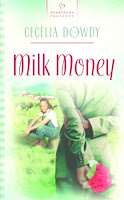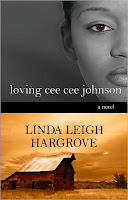Shaun e-mailed me awhile back, asking the following question. I’ve been busy trying to finish up a manuscript and judge a contest, so, I’m just now getting to my response to her. Here’s the question:
I have written a book (it took forever to finish!) now I need to know the next steps to get it published? I would like to know if you self-published your books or if you found a publisher? If you did find a publisher how did you go about it?
Shaun, this is a broad topic and I don’t want to overload you with too much information at once, but I’ll take a stab at it!
#1. Congrats on finishing your book! I’ve met so many people over the years who ask me about writing and say they want to write a book and get it published…but then they never do anything about it! They never write the book, let alone seek a publisher.
#2. I’m assuming your book is a novel? I can advise you on how to go about getting your novel published. I don’t have much experience with non-fiction books.
#3. I’m not a self-published novelist. I’m commercially published. Meaning, the publishers I’ve worked with pay me an advance and I earn that advance back when the books are sold to consumers. The publisher prints, markets and distributes the books. I don’t pay the publisher anything. About every six months, I get a royalty statement showing how many copies have been sold, along with a check for the money that I’ve earned.
#4. If you do decide to self-publish, there’s not much advice that I can give you since I’ve never published that way. All I can offer are things that I’ve heard self-published novelists, as well as industry professionals say: If you decide to self-publish, be sure you have a way to market your books! A lot of self-pubbed people have regular speaking engagements, so they sell the books in the back of the room after speaking. By having a great marketing plan, ensuring that you sell lots of books, would help you if you’re self-pubbed. You don’t want a basement full of books and the only people buying them are your friends and family. You need to have a way to get your books out to the public.
#5. I knew I wanted to commercially publish from the beginning. Since I do Christian romances, I joined some writers organizations. Here are the two that I joined: American Christian Fiction Writers and Romance Writers of America. Both organizations have conferences, and at these conferences, editors from commercial publishing houses attend. You can meet with these editors to pitch your novel. If they’re interested, they’ll let you know. You can then submit it to them and they’ll let you know if they’re interested in publishing your book. But, be warned, it might take months to get a response after you submit. If you’re writing a certain genre, you need to do a google search to see if there are writers organization out there that focus on your genre. Join that organization and connect with other writers via writers meetings, the internet, and possibly a critique group.
#6. You also need to figure out which publisher would be interested in your novel. Go to the bookstore and browse! Look at the novels out there and see which publishers publish novels that are similiar to yours! If you can’t make it to a conference, you can look up the submission guidelines to different publishers via their websites. Be sure to do your homework before submitting. If you wrote a science fiction novel, you wouldn’t submit that to a publisher who only handles romances! I’ve heard both editors and agents complain when they receive submissions from people who don’t research the publisher/agency to see what kinds of books they publish and acquire. But, be warned, more and more publishers are requiring that writers have an agent before submitting to them! If you go to a conference, agents usually attend too. So, it’s possible to speak with both editors and agents at the conference. Currently, I DON’T have an agent. I’ve been able to sell my books on my own via editorial contacts at writers conferences.
#7. START ANOTHER BOOK! Don’t just stop at one! I wrote upwards of five (or more) novels before I landed my first contract! Keep writing and find a writers group, and connect with them!
Hope my suggestions help! Thanks for contacting me!
















